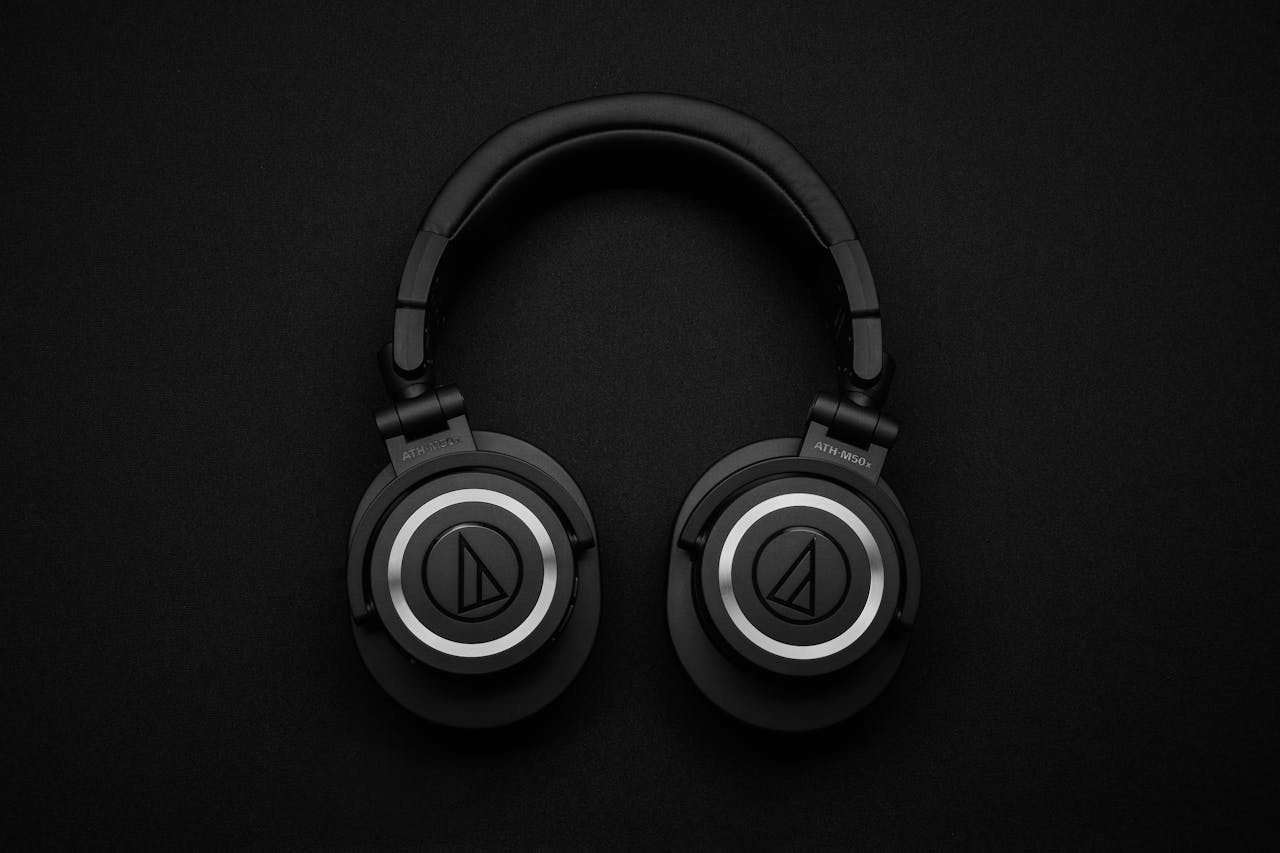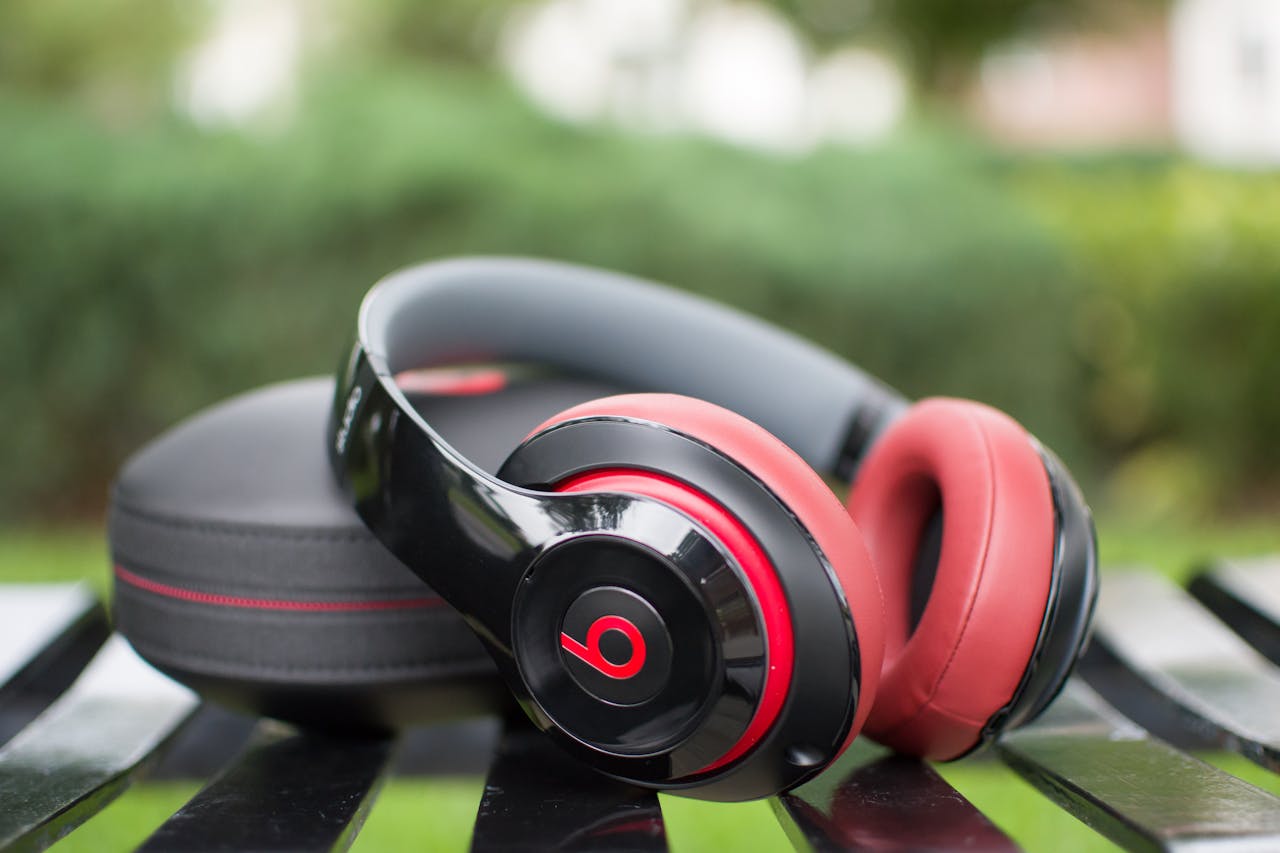
Picture this: You’re trying to finish an essay in your dorm, but your roommate is blasting music. Or maybe you’re in a crowded coffee shop, and the chatter around you is drowning out your online lecture. Sound familiar? For students, finding focus in a world full of distractions can feel like a superpower. That’s where noise-canceling headphones come in, they’re not just a gadget, but a game changer for anyone juggling classes, study sessions, and commutes.
Whether you’re battling the chaos of shared living spaces, tuning out background noise during late-night study marathons, or trying to hear your professor clearly during a Zoom class, noise canceling headphones for students are designed to save the day. These headphones don’t just reduce distractions, they create a personal “focus zone” by blocking out everything from screeching subway trains to noisy roommates. And let’s not forget the bonus: crisp sound quality for when you finally get to unwind with your favorite playlist or podcast.
In this guide, we’ll break down everything you need to know about study headphones, including how they work, what features to look for, and how to make the most of them.
How Noise-Canceling Headphones Work
Noise-canceling headphones aren’t magic, though they sure feel like it. They use two main methods to silence the world around you: Active Noise Cancellation (ANC) and Passive Noise Isolation. Here’s the lowdown on how each works and why students should care.
Active Noise Cancellation (ANC): The Techy Superpower
ANC is like having a tiny scientist inside your headphones fighting noise with anti-noise. Here’s how: Built-in microphones pick up external sounds (like a loud AC unit or a chatty study group), and the headphones generate sound waves that are the exact opposite of those noises. When these opposing waves collide, they cancel each other out—leaving you with blissful silence (or at least way less distraction). This tech is perfect for steady, low-frequency sounds like airplane engines, library HVAC systems, or the rumble of a bus during your commute.
Passive Noise Isolation: The Simple Shield
Passive isolation is all about physical blocking. Think of it like stuffing your ears with pillows—but way more stylish. Headphones with thick ear cushions or in-ear designs create a seal around or inside your ears, physically blocking out higher-frequency noises (like someone’s TikTok video playing nearby or a dog barking outside). These are often cheaper than ANC options and don’t require batteries, making them a solid pick for students on a budget or those who just need a quick noise barrier.
Which One Should Students Choose?
ANC is your go-to if you’re battling constant background noise (hello, dorm life) or need to hyper-focus in loud spaces.
Passive isolation works great for shorter study sessions, sudden noises, or if you’d rather skip charging your headphones.
Pro tip: Some of the best noise-canceling headphones for students combine both ANC and passive isolation for double the silence. Whether you’re cramming in a busy café or surviving a noisy commute, understanding these two methods helps you pick the right study headphones for your hustle.
Features to Look for in Noise Canceling Headphones
Alright, let’s talk about what makes certain noise-canceling headphones for students stand out from the crowd. You don’t want to drop your hard-earned cash on a pair that dies mid-lecture or squeezes your head like a vice, right? Here’s the scoop on the must-have features to keep an eye on:
Battery Life
Imagine your headphones dying right before your professor drops the most important point in a lecture. No thanks. Look for headphones with 20+ hours of battery life to survive back-to-back classes, all-nighters, or cross-campus commutes. Some models even offer a “quick charge” feature, 10 minutes of charging for 2 hours of playback. Perfect for when you forget to plug them in overnight (we’ve all been there).
Comfort & Fit
You’ll be wearing these babies for hours, so prioritize plush ear cushions, adjustable headbands, and lightweight designs. Over-ear headphones with soft memory foam? Yes, please. In-ear models with silicone tips that don’t feel like ear invaders? Double yes. If your headphones feel like they’re slowly crushing your skull, they’re not the ones. Bonus points for swivel ear cups that fold up—they’ll survive being tossed into your backpack between classes.
Sound Quality
Great study headphones don’t just block noise—they deliver crisp, balanced sound. Whether you’re listening to a recorded lecture, streaming lo-fi beats, or unwinding with a podcast, you want clear vocals and rich details. Some models even let you tweak bass or treble settings via an app, which is clutch if you’re an audiophile and a study machine.
Bluetooth vs. Wired Headphones
Wireless (Bluetooth): Freedom to move. No cords tangling while you pace during a study break or sprint to your next class. Plus, most modern laptops and tablets support Bluetooth.
Wired: Never worry about battery life, and zero audio lag (key for gamers or video editors). Some students swear by wired headphones for exam settings where wireless devices aren’t allowed.
Many best noise-canceling headphones for students offer both options, use Bluetooth on the go and plug in when you’re chained to your desk.
Extras For Noise Canceling Headphones For Students
Microphone Quality: If you’re constantly in Zoom meetings or recording voice notes, a clear mic is a must. Look for “beamforming” tech that focuses on your voice, not background noise.
Voice Assistants: Hands-free control for setting reminders, playing music, or checking the weather? Siri and Alexa approve.
App Integration: Customize ANC levels, set focus timers, or track your headphones if they go missing.
Bottom line: The perfect study headphones balance practicality, comfort, and tech that works as hard as you do.

Best Noise Canceling Headphones for Students
Finding the perfect noise-canceling headphones as a student can be tricky, but we’ve rounded up the best options across different price ranges. Whether you need an affordable pair for quiet study sessions or premium ANC for deep focus, here are 10 top picks.
Budget-Friendly Options
If you’re on a tight budget but still want decent noise cancellation, these options are great for studying without breaking the bank.
- Anker Soundcore Life Q20Pros
- Affordable, good ANC, long battery life (40 hours)
- Cons: Sound quality isn’t the best for audiophiles
- Check price on Amazon
- TOZO HT2 Hybrid Active Noise Cancelling HeadphonesPros
- Great ANC for the price, lightweight, Bluetooth 5.3
- Cons: Build quality feels a bit cheap.
- Check price on Amazon
- Srhythm NC25 Active Noise Cancelling HeadphonesPros:
- Impressive ANC for under $50, comfortable fit, 50-hour battery life
- Cons: ANC isn’t as strong as premium models.
- Check price on Amazon
Mid-Range Options
For students who want better ANC and sound quality without spending too much, these mid-range models offer a great balance.
- Sony WH-CH720NPros
- Lightweight, solid ANC, great battery life (35 hours)
- Cons: Lacks premium build materials
- Check price on Amazon
- Soundcore by Anker Space Q45Pros
- Excellent ANC, Hi-Res Audio, 50-hour battery life
- Cons: Slightly bulky
- Check price on Amazon
- JBL Tune 760NCPros
- Great bass, decent ANC, foldable design for easy carrying
- Cons: Plastic build feels cheap
- Check price on Amazon
Premium Options
If you want top-tier ANC and exceptional sound quality, these high-end headphones are perfect for serious students who value concentration.
- Sony WH-1000XM5Pros
- Industry-leading ANC, premium sound, ultra-comfortable
- Cons: Expensive
- Check price on Amazon
- Bose QuietComfort 45Pros
- Superb ANC, comfortable for long hours, great for travel
- Cons: No EQ customization in the app
- Check price on Amazon
- Apple AirPods MaxPros
- Best for Apple users, seamless iOS integration, luxurious build
- Cons: Heavy, very expensive
- Check price on Amazon
- Sennheiser Momentum 4 WirelessPros
- Audiophile-grade sound, excellent ANC, 60-hour battery life
- Cons: More expensive than some competitors
- Check price on Amazon
Choosing the best noise-canceling headphones depends on your budget and needs. If you want a budget-friendly choice, the Anker Soundcore Life Q20 is a solid pick. For mid-range, the Sony WH-CH720N offers great value. But if you want the absolute best, Sony WH-1000XM5 or Bose QuietComfort 45 are unbeatable.
Tips for Maximizing Your Noise-Canceling Headphones
So you’ve got your shiny new study headphones, now what? Let’s make sure you’re squeezing every drop of value out of them. From study hacks to battery care, here’s how to turn your headphones into a productivity powerhouse.
Master the Art of ANC for Studying
Active Noise Cancellation (ANC) is your secret weapon, but use it wisely. For example, in a library with constant humming lights or a dorm with chatter, crank up the ANC to mute distractions. But if you’re in a quiet room, switch to a low ANC mode (or turn it off) to save battery. Some best noise-canceling headphones for students let you customize ANC levels via an app, play around with settings to find your “Goldilocks zone” of silence.
Pro tip: Pair ANC with instrumental music or ambient sounds (like rain or café noise) to boost focus without feeling isolated.
Battery Life Hacks
Nothing kills a study groove faster than a “low battery” beep. To avoid this:
- Turn off ANC when you don’t need it (like during a walk between classes).
- Use auto-off features if your headphones have them.
- Avoid extreme temperatures—batteries hate being left in freezing cars or sunny windowsills.
- Charge to 80% instead of full if you’re storing them long-term (like over break).
- For wired headphones, this isn’t a worry, just enjoy the unlimited power.
Apps to Supercharge Your Productivity
Your noise-canceling headphones for students aren’t just for music, they’re a gateway to next-level productivity. Try these apps:
- Focus@Will or Brain.fm: Science-backed playlists designed to improve concentration.
- Forest: Grow virtual trees while you study (and resist the urge to check your phone).
- Noisli: Mix custom background sounds (like thunderstorms + coffee shop chatter).
- Your headphone’s brand app: Update firmware, tweak EQ settings, or locate lost headphones.
Comfort is Key: Take Breaks.
Even the comfiest headphones can feel heavy after hours. Follow the “20-20-20” rule: Every 20 minutes, take a 20-second break, and stretch your ears/neck. Your focus (and ears) will thank you.
Keep Them Clean (Seriously)
Crumbs from late-night snacks? Ew. Wipe ear cushions with a damp cloth weekly, and use a soft brush to clear debris from microphone ports. Clean headphones = clearer sound + longer lifespan.
Investing in the best noise-canceling headphones for students isn’t just about blocking noise, it’s about reclaiming your time, energy, and sanity. Think of them as your secret weapon for acing exams, nailing presentations, and actually enjoying your downtime.
Frequently Asked Questions
Q: Are noise-canceling headphones worth it for studying?
A: Absolutely! They help minimize distractions, improve concentration, and make it easier to absorb information. For students juggling busy environments, they’re a game-changer.
Q: Can ANC damage your hearing?
A: Nope! ANC uses sound waves to cancel noise, it doesn’t blast volume into your ears. Just keep your music at a reasonable level (below 85dB) to protect your hearing long-term.
Q: What if I’m on a tight budget?
A: Look for passive noise-isolating headphones (like in-ear models with foam tips) or refurbished ANC options. Brands like Anker or Soundcore offer great budget-friendly picks.
Q: Do noise-canceling headphones work for all types of noise?
A: ANC excels at blocking steady, low-frequency sounds (like traffic or AC hum), while passive isolation handles sudden, high-pitched noises (like voices). For best results, combine ANC with light background music.
Q: Can I use them for workouts or running?
A: Some ANC headphones are sweat-resistant, but check the IP rating first. For intense workouts, lightweight wireless earbuds with passive isolation might be better.
Q: Do they work with all devices?
A: Most study headphones support Bluetooth and/or wired connections, but double-check compatibility with your laptop, tablet, or phone.

Add a Comment